
This particular reading intersections topic is near and dear to my heart. You see, a few months ago I fell down this very rabbit hole, amassing a towering pile of non-fiction espionage titles, mostly those pinned to the heart of the Cold War. I have yet to see the light of day, quite happy to remain in the dark a while longer still, with the vast number of books readily available for exploration on this subject close at hand. The books below mark the route I took; enjoy the journey through the land of American/Russian unrelations! One piece of advice before you go: Shore up your nerves, and try not to look over your shoulder.
Start Here:
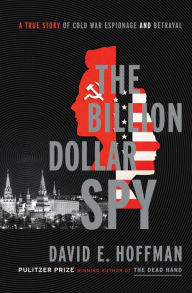 David E. Hoffman. The Billion Dollar Spy: A True Story of Cold War Espionage and Betrayal. 2015.
David E. Hoffman. The Billion Dollar Spy: A True Story of Cold War Espionage and Betrayal. 2015.
“While driving out of the American embassy in Moscow on the evening of February 16, 1978, the chief of the CIA’s Moscow station heard a knock on his car window. A man on the curb handed him an envelope whose contents stunned U.S. intelligence: details of top-secret Soviet research and developments in military technology that were totally unknown to the United States. In the years that followed, the man, Adolf Tolkachev, an engineer in a Soviet military design bureau, used his high-level access to hand over tens of thousands of pages of technical secrets. His revelations allowed America to reshape its weapons systems to defeat Soviet radar on the ground and in the air, giving the United States near total superiority in the skies over Europe.
One of the most valuable spies to work for the United States in the four decades of global confrontation with the Soviet Union, Tolkachev took enormous personal risks—but so did the Americans. The CIA had long struggled to recruit and run agents in Moscow, and Tolkachev was a singular breakthrough. Using spy cameras and secret codes as well as face-to-face meetings in parks and on street corners, Tolkachev and his handlers succeeded for years in eluding the feared KGB in its own backyard, until the day came when a shocking betrayal put them all at risk.”
Next Stop:
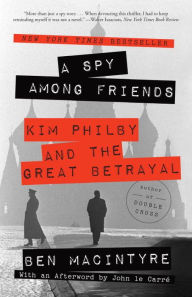 Ben Macintyre. A Spy Among Friends: Kim Philby and the Great Betrayal. 2015.
Ben Macintyre. A Spy Among Friends: Kim Philby and the Great Betrayal. 2015.
“Kim Philby was the greatest spy in history, a brilliant and charming man who rose to head Britain’s counterintelligence against the Soviet Union during the height of the Cold War—while he was secretly working for the enemy. And nobody thought he knew Philby like Nicholas Elliott, Philby’s best friend and fellow officer in MI6. The two men had gone to the same schools, belonged to the same exclusive clubs, grown close through the crucible of wartime intelligence work and long nights of drink and revelry. It was madness for one to think the other might be a communist spy, bent on subverting Western values and the power of the free world.
But Philby was secretly betraying his friend. Every word Elliott breathed to Philby was transmitted back to Moscow—and not just Elliott’s words, for in America, Philby had made another powerful friend: James Jesus Angleton, the crafty, paranoid head of CIA counterintelligence. Angleton’s and Elliott’s unwitting disclosures helped Philby sink almost every important Anglo-American spy operation for twenty years, leading countless operatives to their doom. Even as the web of suspicion closed around him, and Philby was driven to greater lies to protect his cover, his two friends never abandoned him—until it was too late. The stunning truth of his betrayal would have devastating consequences on the two men who thought they knew him best, and on the intelligence services he left crippled in his wake.”
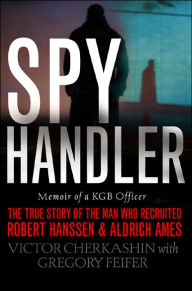 Victor Cherkashin, Gregory Feifer. Spy Handler: Memoir of a KGB Officer: The True Story of the Man Who Recruited Robert Hanssen and Aldrich Ames. 2005.
Victor Cherkashin, Gregory Feifer. Spy Handler: Memoir of a KGB Officer: The True Story of the Man Who Recruited Robert Hanssen and Aldrich Ames. 2005.
“In his four decades as a KGB officer, Victor Cherkashin was a central player in the shadowy world of Cold War espionage. From his rigorous training in Soviet intelligence in the early 1950s to his prime spot as the KGB’s head of counterintelligence at the Soviet embassy in Washington, Cherkashin’s career was rich in episode and drama. In a riveting memoir, Cherkashin provides a remarkable insider’s view of the KGB’s prolonged conflict with the CIA. Playing a major role in global espionage for most of the Cold War, Cherkashin was posted to stations in the United States, Australia, India, and Lebanon. He tracked down U.S. and British spies around the world. But it was in 1985 that Cherkashin scored two of the KGB’s biggest-ever coups. In April of that year, he recruited disgruntled CIA officer Aldrich Ames and became his principal handler. Six months later, FBI special agent Robert Hanssen contacted Cherkashin directly, eventually becoming an even bigger asset than Ames. In Spy Handler, Cherkashin offers the complete account of how and why both Americans turned against their country, and addresses the rumors of an undiscovered KGB spy-another Hanssen or Ames-still at large in the U.S. intelligence community.”
A Little to the Left:
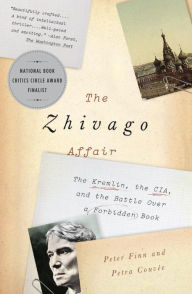 Peter Finn, Petra Couvee. The Zhivago Affair: The Kremlin, the CIA, and the Battle Over a Forbidden Book. 2015.
Peter Finn, Petra Couvee. The Zhivago Affair: The Kremlin, the CIA, and the Battle Over a Forbidden Book. 2015.
“The Zhivago Affair is the dramatic, never-before-told story—drawing on newly declassified files—of how a forbidden book became a secret CIA weapon in the ideological battle between East and West.
In May 1956, an Italian publishing scout went to a village outside Moscow to visit Russia’s greatest living poet, Boris Pasternak. He left carrying the manuscript of Pasternak’s only novel, suppressed by Soviet authorities. From there the life of this extraordinary book entered the realm of the spy novel. The CIA published a Russian-language edition of Doctor Zhivago and smuggled it into the Soviet Union. Copies were devoured in Moscow and Leningrad, sold on the black market, and passed from friend to friend. Pasternak’s funeral in 1960 was attended by thousands who defied their government to bid him farewell, and his example launched the great tradition of the Soviet writer-dissident. First to obtain CIA files providing proof of the agency’s involvement, Peter Finn and Petra Couvée take us back to a remarkable Cold War era when literature had the power to stir the world.”
Watch It:
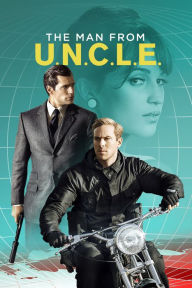 Starring Henry Cavill and Armie Hammer. The Man from U.N.C.L.E. 2015.
Starring Henry Cavill and Armie Hammer. The Man from U.N.C.L.E. 2015.
“Set against the backdrop of the early 1960s, at the height of the Cold War, THE MAN FROM U.N.C.L.E. centers on CIA agent Solo (Man of Steel’s Henry Cavill) and KGB agent Kuryakin (The Social Network’s Armie Hammer).
Forced to put aside longstanding hostilities, the two team up on a joint mission to stop a mysterious international criminal organization, which is bent on destabilizing the fragile balance of power through the proliferation of nuclear weapons and technology. The duo’s only lead is the daughter of a vanished German scientist, who is the key to infiltrating the criminal organization, and they must race against time to find him and prevent a worldwide catastrophe.”
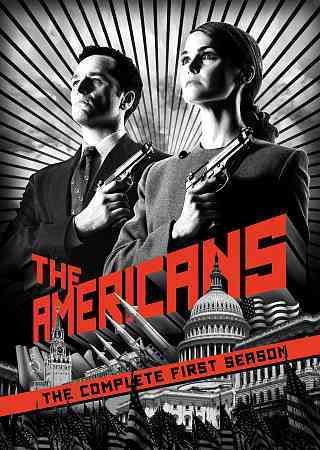 Starring Kerri Russell and Matthew Rhys. The Americans. 2014-2015.
Starring Kerri Russell and Matthew Rhys. The Americans. 2014-2015.
Season One: “Secrets can be deadly in this suspenseful thriller about undercover Russian spies in 1980s Washington D.C. Phillip and Elizabeth Jennings seem to be a typical suburban couple, but they’re actually lethal KGB agents plotting to bring down America. As the Cold War escalates, Philip and Elizabeth must take extreme measures to continue their mission to keep their true identities hidden. But when an FBI agent moves in across the street, they become ensnared in a pulse-pounding game of cat and mouse.”
Season Two: “Technological advances have escalated Cold War tensions to an all-time high, and undercover KGB operatives Elizabeth and Philip Jennings face the growing threat of discovery. As their assignments grow more deadly, their family is in more danger, and their loyalties are tested like never before.”
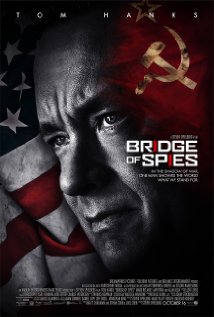 Starring Tom Hanks and Mark Rylance. Bridge of Spies. February 2016.
Starring Tom Hanks and Mark Rylance. Bridge of Spies. February 2016.
“During the Cold War, an American lawyer is recruited to defend an arrested Soviet spy in court, and then help the CIA facilitate an exchange of the spy for the Soviet captured American U2 spy plane pilot, Francis Gary Powers.”
[Based on the book of the same title by Giles Whittell.]


